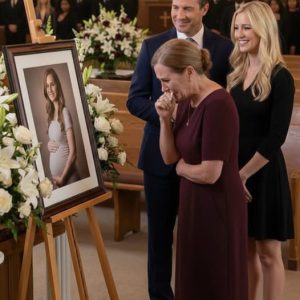After fifty years of marriage, friends and family gathered to celebrate an elderly couple’s anniversary. Their children had planned a warm, intimate evening full of laughter, memories, and gentle music. When the familiar melody of their first wedding dance began to play, the couple slowly moved to the center of the room. Decades seemed to melt away as they swayed together, a living reminder of a lifetime shared side by side. Guests smiled, some teary-eyed, feeling privileged to witness such devotion.
When the music ended, however, the husband unexpectedly stepped back and cleared his throat. In a quiet voice, he confessed that long ago he had entered the marriage under pressure and had never truly loved his wife in the way he felt he should have. He spoke awkwardly but honestly, saying he believed he stayed to raise their children and now hoped to live the rest of his life peacefully. His words fell like stones in the silence. Shock rippled across the room, and guests froze in disbelief.
For a moment, his wife stood still, her expression unreadable. Many feared she would break down or respond with anger, but instead, she lifted her head with grace. In a calm, steady voice, she explained that love takes many forms and that she had always chosen to build a life based on kindness, patience, and family. She told him that while his revelation was painful, she held no bitterness. “You may not have chosen love,” she said gently, “but I did — and that choice shaped our home, our children, and the life we built.”Her words left the room quiet, not from shock this time, but from admiration. The husband lowered his eyes, realizing that true strength had always been standing beside him — not in loud declarations, but in years of steady devotion, forgiveness, and dignity. In that moment, everyone understood something profound: love is not only about what we feel, but also about how we choose to care, give, and grow. Sometimes, the deepest love is the one that never seeks applause — only peace, understanding, and grace.





